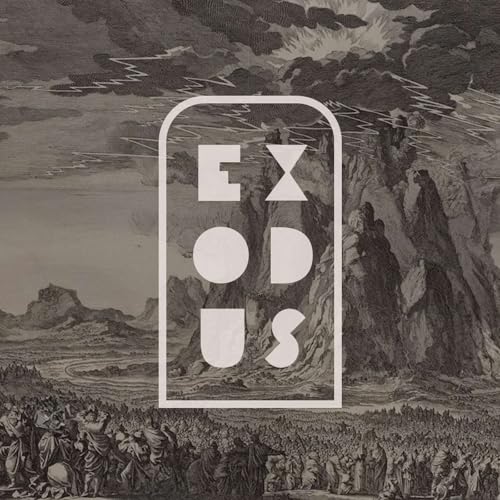Welcome to the sermon. Last week, we explored Moses's question, "Who am I?" Today, we tackle the other great question from the burning bush: "Who are you, God?" We're diving into Exodus 3 to explore the profound meaning behind the name God reveals for Himself—a name full of mystery and power, which is ultimately and most clearly revealed in the person of Jesus.
Scripture References
- Exodus 3:13-15: Moses asks for God's name, and God reveals Himself as "I AM WHO I AM."
- John 8:56-59: Jesus declares, "Before Abraham was, I AM," identifying Himself as Yahweh.
- Hebrews 12:29: "For our God is a consuming fire."
- Colossians 1:15-20: A description of Jesus as the supreme and exact image of the invisible God.
Key Points
1. Why Moses Asks for a Name
Moses wasn't just asking for a label. In a world of many gods, he needed more than a title; he was asking for God's character and power. He needed to understand who this God was so he could confidently lead the Israelites. It was a request for a deeper revelation of God's very nature.
2. The Mysterious Name: "I AM" (YHWH)
God's answer is a profound riddle: "I AM WHO I AM." This reveals His personal name, YHWH (often translated as "the LORD"), which points to His self-existence, His eternal and unchangeable nature, and His power as Creator. Like the burning bush itself, God's name is both inviting and holy—the fire draws us in with fascination but also warns us with its power. It's an invitation to spend a lifetime getting to know this mysterious, all-powerful God.
3. Jesus is the Answer to the Riddle
The mystery of God's name finds its ultimate answer in Jesus. In the New Testament, Jesus repeatedly uses "I AM" statements ("I am the good shepherd," "I am the vine," etc.) and makes the staggering declaration, "Before Abraham was, I AM" (John 8:58). He wasn't just pointing to Yahweh; He was identifying Himself as Yahweh in the flesh. If the name YHWH was the introduction, Jesus is the full story.
Conclusion
The name of God, Yahweh, is not just an ancient fact; it's an invitation into a relationship with the self-existent, all-powerful Creator. Jesus is the final and clearest revelation of this name. He is Yahweh in the flesh, the perfect image of the invisible God, making the mysterious known. To truly know the great "I AM," we must know Jesus.
Calls to Action
- Bow to Jesus: If you have never surrendered to Him, recognize Him today as the one true God, Yahweh in the flesh.
- Ask for the Fire: If your faith has grown stagnant, pray for the fire of the Holy Spirit to burn away your boredom and fascinate you with God's presence anew.
- Go Deeper: Move beyond knowing facts about God to pursuing an experiential relationship with God through Jesus.
Support the show
*Summaries and transcripts are generated using AI.
Please notify us if you find any errors.
 Dec 7 202543 min
Dec 7 202543 min Dec 1 202545 min
Dec 1 202545 min Nov 16 202545 min
Nov 16 202545 min Nov 9 202537 min
Nov 9 202537 min Nov 2 202543 min
Nov 2 202543 min Oct 26 202542 min
Oct 26 202542 min Oct 12 202533 min
Oct 12 202533 min Oct 5 202552 min
Oct 5 202552 min
